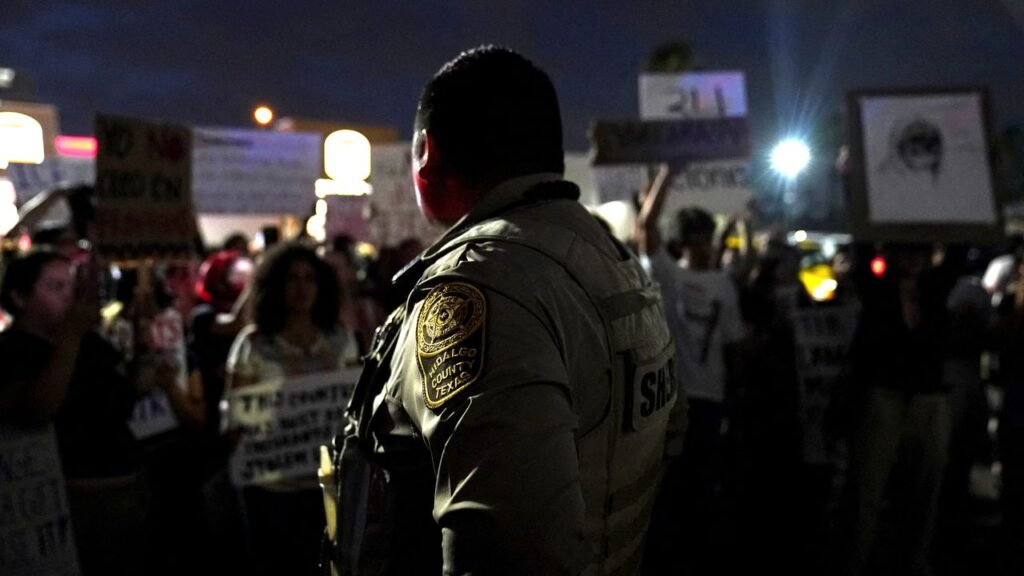The Political and Economic Landscape of McAllen: A Mayor’s Perspective on Immigration Raids
A Shift in McAllen’s Community Dynamics
In recent weeks, a noticeable shift has taken place in McAllen, Texas, a prominent city in the Rio Grande Valley. Mayor Javier Villalobos has observed a stark transformation in his community, particularly following a series of ICE raids across the region. "You visit construction subdivisions, and they’re empty. Even Home Depot seems desolate," Villalobos remarked, likening the atmosphere to The Walking Dead.
A Historical Context of Political Realignment
Historically, the Rio Grande Valley has been a steadfast supporter of the Democratic Party. However, recent elections revealed a surprising shift toward the Republican Party, particularly in light of Donald Trump’s appeal to nonwhite voters. Villalobos’s election as mayor in 2021 was celebrated by Republicans as an indication of this trend. Former Trump adviser Steve Cortes tweeted about the significance of electing a Republican mayor in a city where 85% of the population is Hispanic. Trump’s influence was palpable in the last presidential election, where he won every county in the Valley, reversing significant Democratic margins from previous elections.
The Texas Observer described this political shift as a "Red Wave," raising questions about the future of Texas Democrats in the face of rising GOP support.
Economic Impact of Trump’s Policies
Despite this political change, the economic implications of Trump’s policies have begun to weigh heavily on the region, which relies on trade with Mexico. In June, Trump announced through Truth Social that ICE would intensify efforts for mass deportation, targeting predominantly Democratic-led cities. This strategy has profoundly affected communities like McAllen, which shares demographic similarities with Los Angeles, a city known for its diverse, immigrant population.
Reports indicate that ICE has conducted raids in public spaces, drastically affecting local businesses. A visit to a popular flea market revealed a significant drop in customer traffic due to fear of deportations, prompting vendors to express concern over plummeting sales, with estimates suggest a 90% decrease in foot traffic.
Local Leaders Speak Out
Amid these circumstances, Villalobos has been vocal about the negative impacts of these raids on the community. During a recent event hosted by the South Texas Business Partnership, he expressed the need to confront the situation head-on: "They claim they target murderers and rapists. But in reality, it feels more like a dragnet affecting everyone."
At a subsequent community gathering—his fifty-second annual Mayor’s Prayer Luncheon—Villalobos donned a cobalt-blue suit, embodying hope in the face of adversity. As attendees gathered to offer prayers for communal guidance, Villalobos emphasized the importance of unity among political factions to address economic concerns. He referenced discussions with Texas Congress members, advocating for common-sense solutions to immigration enforcement and its economic repercussions.
Business Owners Speak on Fear and Trust
Local entrepreneur Roel Moreno Jr., who runs a construction company in the Valley, echoed Villalobos’s sentiments, detailing how the raids have instilled fear among his workforce. He remarked that he often sees only a fraction of his usual employees at job sites, with many expressing anxiety about potential deportation. "I had a worker tell me he was scared to come back," Moreno disclosed.
He represents a broader sentiment among Valley residents who prioritize family and community but remain uncertain about how this turbulent political landscape will affect their lives.
The Story of Mayor Villalobos
Born to migrant workers, Villalobos’s journey from young farm laborer to a figure in local politics mirrors the narratives of many in the community. His early experiences have shaped his outlook; despite traditionally leaning Democratic, he switched to the Republican party around 2007, motivated by economic concerns as the Valley’s political landscape began to shift.
Villalobos’s rise reflects the intricate interplay of tradition, politics, and the realities of life in the Rio Grande Valley, where economic pressures and immigration policies are at the forefront.
Conclusion: Navigating a Complex Future
As McAllen navigates these tumultuous times, the voices of local leaders like Villalobos stand vital in advocating for solutions that prioritize community well-being over political affiliations. The unfolding impacts of immigration enforcement echo throughout the Valley, raising critical questions about the balance between national policies and local realities.
For further insight into the evolving political landscape in Texas and the broader implications on communities across the nation, stay informed with reputable news outlets and analyses.


